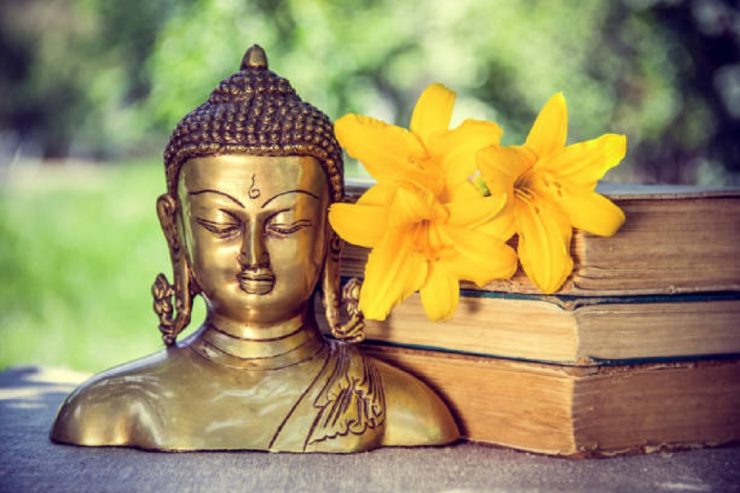Learning gave me the pride of knowledge. Knowing made me humble, as I know now, how much I don’t know.
According to Lao Tzu, “To attain knowledge, add things every day. To attain wisdom, remove things every day.”
Our understanding of life is expressed through knowledge and wisdom. Both of these are important in their respective uses, but great confusion and suffering can arise if we misuse one for the other. Particularly on the path of self-inquiry, these two modes of understanding should be clearly and distinctly understood. Knowledge is understanding a thing on the basis of collected information using our intellectual power. It can be owned, stored, analyzed, computed, and transferred. Therefore, it can have economic value and provide us with choices. Today, the access to knowledge is accelerating at explosive speed. People are walking with encyclopedias in their pockets. Credit goes to the smart gadgets floating in the market. Knowledge has clearly proved its supremacy in the world to the extent that the entire world is living in a fog of ideas, and has reduced human beings into thought bots. We relate to each other with ideas, languages, and descriptions. When you see a rose, you don’t see a rose as such, but see it as a valentine’s gift or a decorative item, etc.
On the other hand, wisdom understands the thingness of a thing, directly using our beingness in entirety—physical, mental, and spiritual. Hence it enables real- ization—which brings awareness of reality at this very moment free from past conditioning. When you see a rose, you do see the rose as such as a flower in existence. At a mature level of awareness, wisdom is in a meaningful realization of—being, existence, and their inter-relationship. It needs a deeper engagement in the phenomenon. The trajectory of wisdom is trusting our common sense, exploring, deep reasoning, experiencing the uncommon sense, formulate the meaning, thereupon expressing as a transformed being. Both knowledge and wisdom have their specific functions, applications, and benefits for the development of human beings.
At a very high level, if we take existence as a mix of—matter and consciousness. Then, the effort in exploration of these two aspects can be very different, either knowledge-driven or wisdom-driven or both. And, circumstantially the effort could be deployed, How? To explore the matter, knowledge can be beneficial. For example, if someone says consumption of cyanide causes death, then you need not actually consume it to realize it. You can be knowledge-driven, no need to re-invent the wheel. Leveraging Prior knowledge helps to focus your efforts by eliminating the non-useful means.
On the other hand, to explore consciousness, wisdom is of prime significance. Knowledge may be a by-product of knowing and realizing. Many times, a knowledge-driven effort is a hindrance in self-awareness because the intention is not to learn “about the awareness” but to realize “the awareness.” For example, when you meet your loved ones. You feel the connection, and it occurs in the present moment, fresh and fulfilling. On the other hand, if you meet with a preconditioned mind and expectations, the experience may not be fresh and fulfilling. To some people the entire world looks boring due to a preconceived idea of it.
Sadly, we intermix our attitudes about exploration, which causes a lot of issues for humanity. For example, religions preach about spirituality and inward-looking approach. And the first thing they do is to give books, beliefs, stories, sermons, and scriptures; thus, it conditions the mind in a specific direction, aligned to their group thought. In this way, knowledge is used as a tool, and the power of suggestions is used to draw a particular experience out of being. People spend their entire life in accumulating theories but are never self-aware. It can be to the extent that common sense is transformed into common non-sense and people end up doing those things due to beliefs which they would not have done otherwise as individuals. Religious violence is a perfect example where a common person can be conditioned to become a religious weapon. Knowledge creates a biased attitude and hinders freedom of self-exploration. Its continuous injections solidify the biases and limit the mind to act and live free in the present moment. Our unlimited human potential gets locked out in the tight jacket of knowledge-driven society, which makes us feel claustrophobic and stressed out.
No wonder, most of the people on a self-realization path suffer from prevalent knowledge, and when they look out for help, unfortunately, they are given suggestions from the same bag of knowledge, which causes adverse conditions for them. For example, in religions, more rituals are provided as a remedy , at least initially. to fix other religious issues. Rarely, one realizes it as insanity and hindrance. And, until one throws away this knowledge-driven attitude in totality and resets to a wisdom- driven perspective, anything of real meaning is not gained.
This poem addresses this specific issue. It elaborates that since time immemorial, humanity has been evolving through religions, economics, nations, society, and so on. Therefore, a heap of knowledge is available to us, which can be attractive, or sometimes imposed from outside. It becomes a mandatory dependency and a burden at the same time, but one needs to know that knowledge can be a prop but not a dependency; and mostly, it becomes a hindrance. On the path of self-awareness, the ONLY dependency is one’s real intention, genuine effort, and availability to self-explore. Therefore, one needs to come out of the academic and defined mindset, accept the way he or she is without manipulation. This allows one to live original, fresh, and lively.
In short, live with a wisdom-driven practical life, born out of “knowing” instead of knowledge. Perhaps through us, the existence wants to experience the matter, so why not create original and joyful experiences in existence? You are the best creation of existence, and you can be the best creator of experience. How wonderful it is!













Add comment